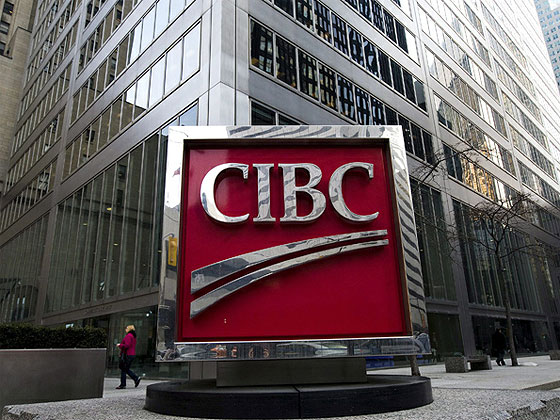Just a few years after the financial crisis of 2008, international investment markets are undergoing yet another dip as the European market attempts to hold its economy together. Through the interim, Canada has managed to hold its own in terms of avoiding the dreaded bailout options entered into to by other countries. Canadian investors may remain in preservation mode for the time being, though it’s pretty much business as usual for the ones who have taken a long-term approach with their investment options.
Greece and the European Debt Crisis
As of 2012, Greece sits at the center of the European debt crisis in an attempt to avoid bankruptcy as a nation. Greece joined Europe’s EMU or Economic & Monetary Union in 2001 under similar circumstances and was only able to qualify by withholding details regarding the country’s debt problems.
 Unlike the 2001 scenario, Greece’s failure to pay off its debts can have a domino effect on other countries within the EMU, such as Spain and Portugal. Fears surrounding Greece’s status have put investors across the globe in preservation modes, including Canadian investors. And while no major effects have reached the stock markets, markets are nonetheless bracing for whatever outcome may occur within the European markets.
Unlike the 2001 scenario, Greece’s failure to pay off its debts can have a domino effect on other countries within the EMU, such as Spain and Portugal. Fears surrounding Greece’s status have put investors across the globe in preservation modes, including Canadian investors. And while no major effects have reached the stock markets, markets are nonetheless bracing for whatever outcome may occur within the European markets.
The Standard & Poor – Toronto Stock Exchange Composite market index has fallen 19 percent since reaching is post-recession peak in February 2012. In the meantime, a decline in commodity prices has left the Canadian dollar unable to earn a profit when doing business with countries carrying high interest rates. Until Greece and the EMU reach a resolution, international markets may continue to stay in preservation mode with Canadians following suit.
Economic Effects of Canadian Banks and Investment Market
The effects of the European financial crisis on Canada’s investment market are both direct and indirect. Direct effects have caused Canadian companies to experience decreases in earnings as a result of the reduced spending taking place across the globe. Indirect effects result from the overall instability within investment markets, leaving Canadian companies unable to earn expected profits on their investments.

On the up-side, Canadian banks were able to weather the effects of the 2008 U.S. credit crisis/ recession period quite well. With the United States being a major trading partner with Canada, surviving one of the U.S.’ worst economic periods in history bodes well for Canada’s ability to weather the European crisis.
As a result of the 2008 recession, banks in every country were required to hold onto a larger percentage of their capital reserves. This has left Canadian banks with 50 percent more capital in reserve than before the 2008 crisis took place. These conditions have placed Canada’s banks in a good position to deliver consistent returns to their shareholders, even as the European crisis unfolds.
Investment Outlook for Canadian Investors
As Canadian investors have good reason to be in preservation mode, there are some investment stocks worth considering within the Canadian market. Not surprisingly, the large cap, blue chip stocks have maintained their status as quality investments. These larger Canadian companies have acquired a bit of experience in managing international crises and operational problems as a result of the 2008 U.S. credit crisis.
This has left the blue chip companies even stronger than before, which allows them to offer considerably stable and predictable stock investment options, according to Colum McKinley, vice-president of Canadian Equities – CIBC Global Asset Management.

Since Canada’s economy has experienced mostly indirect effects from Greece’s financial crisis, Canadian banks should fair well even if an all out recession does occur within segments of the European market. For the individual investor, preservation mode may only warrant holding onto capital reserves while investing with what’s leftover, much like the Canadian banks did to weather the 2008 storm.
Long-Term Investment Approach
Reacting to each and every rise and fall within the stock market is seldom a wise approach considering how the market works as a whole. With the variety of investment options available, having a diversified portfolio creates a built-in cushion should one or more investments lose money.
With Canada fairing relatively well in the midst of the European crisis, investors may want to develop a healthy mix of assets and investment stocks to ensure minimal losses over the course of 2012. Approaching the markets with a long-term investment perspective can help investors to take the markets’ ebbs and flows in stride.
 Regardless of market conditions, maintaining a certain percentage in capital reserves or cash assets is always a wise course of action. For Canadian investors, these extra reserves may very well place them a prime position to capitalize on any upcoming buying opportunities that surface once the crisis is over.
Regardless of market conditions, maintaining a certain percentage in capital reserves or cash assets is always a wise course of action. For Canadian investors, these extra reserves may very well place them a prime position to capitalize on any upcoming buying opportunities that surface once the crisis is over.
About the Author: This article is provided to you by Kanetix Ltd. – Canada’s premiere online insurance quote comparison service. You can stay up-to-date on the latest news on finance by following the Kanetix Facebook page. Please check them out for if you want great deals on your car insurance this year (for Canadian visitors only). They offer competitive rates and a very easy to use website – we would like to thank them for writing such a superb and informative article to host on the Wall Street Subscriptions and Discounts website.
Want to Get the Inside Track on Investing?
If you would like to get inside knowledge, tips, and advice on how to get the best weekly stock picks then we would also recommend that you sign-up to the MarketWatch Revolution Investing Newsletter from Cody Willard. This weekly email investment newsletter will help you to grow your portfolio with some very unconventional investment strategies from Cody Willard. He is the founder of CL Willard Capital and also regularly appears on TV to offer advice and insight into the best investment strategies for beginners. Click here now to check out our Revolution Investing newsletter review.
